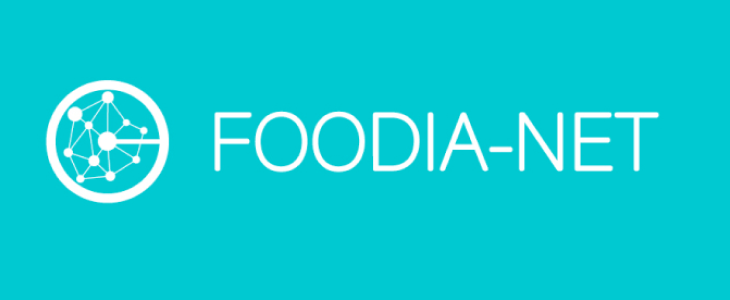FooDia-Net

The spread of Diabetes mellitus has very strong, and little considered, clinical, social and economic impacts. This is where FooDia-Net, a project proposing a new operational model for diabetes prevention, operates. It is among the projects that feed into the I-Care LAB.
Definition and implementation of an innovative task shifting operational model to promote food engagement and literacy in the prevention of Diabetes mellitus and its complications. The project, through its protocol and purpose-developed web platform, provides digital tools and content to promote two essential factors in preventing the onset and complications of diabetes: the awareness of sufferers of the importance of taking a proactive role and their food literacy.
People who suffer from type 2 diabetes mellitus.
The project, approved under the program of activities of the National Center for Disease Prevention and Control (NCCM, Centro Nazionale per la Prevenzione e il Controllo delle Malattie year 2018), was conducted in collaboration with the then Department of Emergency and Organ Transplantation (DETO, Dipartimento per l’emergenza e il trapianto di organi) - U.O. C. of Diabetology of the Policlinico di Bari, and coordinated by AReSS Puglia as lead partner, with the involvement of Lombardy, Marche, Tuscany, Lazio, and Catholic University of Milan.
The FooDia-Net Protocol consists of an operational pathway with therapeutic education and motivational counseling purposes delivered through a web platform, developed during the project and currently owned by the Ministry of Health, with the main purpose of promoting secondary prevention of Type 2 Diabetes mellitus, focusing on the promotion of food literacy, i.e., patient knowledge related to the nutritional properties of individual foods, and Engagement, i.e., the motivational and emotional readiness of patients to take personal care of their health and lifestyle, while fostering the use of integrated approaches to care for pathway redesign also in the sense of digital innovation.
The task shifting, made possible by a cascading training process of different types of operators (from physician to patient, passing through some key figures such as nurse, psychologist, dietitian, and expert patient), allowed the redistribution of tasks to a broader team of operators, including lay people, creating a mix of professionalism and experience capable of educating on the FooDia-Net protocol and accompanying the diabetic patient on a path of growth in the ability to manage his or her disease.
Launched in March 2019, the project ended in early November 2021.
Over the three years of the project, the following main results were achieved:
- the "Me and My Diabetes" questionnaire is structured for the identification of levels of food literacy, the assessment of the involvement of people with diabetes at the cognitive, behavioral and emotional levels, and the identification of areas of improvement for patient empowerment. The questionnaire represents the starting and ending point of the FooDia-Net Protocol, and was also used to conduct a survey on an anonymous and voluntary basis;
- the online survey on levels of food literacy and engagement was conducted to learn about unmet educational needs in the population of the areas considered and better target interventions. It was attended by a total of 241 patients mainly afferent to the trial areas and suffering from type 2 diabetes; it showed adequate levels of literacy in 66% of cases and levels of engagement between "awareness" and "Project eudaimonic" (respectively) in 70% of cases;
- the FooDia-Net Protocol: a new tool to support integrated care in the prevention of Diabetes mellitus and its complications. The Protocol consists of a 28-day pathway that starts with the patient's registration to the platform. The registered user can choose his or her referring educator from the roster available online where all educators who have completed the necessary training are visible. The next step is self-assessment of one's level of food literacy and engagement by filling out the "Me and My Diabetes" questionnaire that is shared with the chosen educator. The system allows for the initiation of a one-to-one relationship through chat and messaging services; self-education can begin by accessing specific training and in-depth content based on one's level of food literacy and engagement and exercises that enhance one's emotional and cognitive ability to manage the condition. After 4 weeks (end of the course) evaluation with the same questionnaire allows monitoring of the progress made, both on knowledge related to managing Diabetes and on one's awareness/engagement level.
- the protocol was proposed to 166 patients in total and piloted in 88; of these patients, 38 completed it with encouraging results: statistically significant improvements in levels of food literacy and signs of improvement in levels of engagement. 41 percent, of the patients who completed the protocol were from Puglia;
- the FooDia-Net platform: gateway to the Protocol and training resources for the promotion of therapeutic education and motivational counseling, it allows asynchronous interaction between educator and patient and comparison between educators to support a multidisciplinary approach. The platform has been delivered to the Ministry of Health and can be requested for reuse;
- the network of educators to the FooDia-Net Protocol: health professionals and lay practitioners (third sector resources or experienced patients) appropriately trained through CME and capacity building pathways.
Elisabetta Anna Graps is Coordinator and Scientific head of the project.






